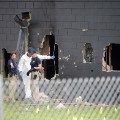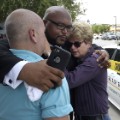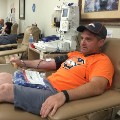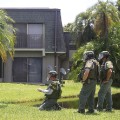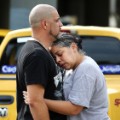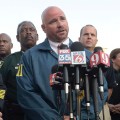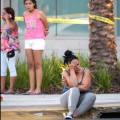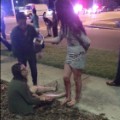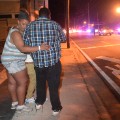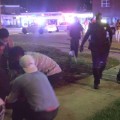Story highlights
- At least 50 people were killed in a nightclub in Orlando in the early hours of Sunday morning
- Haroon Moghul: Muslim world must not just reject extremism in word, but defeat it in deed
Haroon Moghul is a Senior Fellow and Director of Development at the Center for Global Policy . His next book, How to be a Muslim, will be out in 2017.The opinions expressed in this commentary are his.
(CNN)After attacks like the one in Orlando early Sunday morning, many turn to Muslims in expectation of an answer. An explanation, or maybe an apology. At times like this, many Muslims turn to each other in despair, looking for answers, too. Well, I have one.
Condemning terrorism is a woefully inadequate response to a persistent menace. We could condemn every attack, in every part of the world. Just last week, there was a terrorist attack in Istanbul. But it wouldn't make a significant difference because -- and here's the key -- it is a fundamentally reactive strategy. It cedes terrorists the power to set the agenda.
One of the reasons we got here is because there is a huge disconnect in too much of the Muslim world between what we want to see, and what we're actually capable of bringing about. Much of the Muslim world is dominated by violent, oppressive governments, some of which spend liberally to support their interpretation of Islam. Sadly, they have enough cash to crush more compassionate and intelligent alternatives.
As a result, there are hundreds of millions of Muslims who go unrepresented, who have almost no institutions that can realize our different hopes and dreams. Aid our co-religionists. Advance our concerns. Defend our various causes. Provide quality education. We are underperforming on almost every level -- regionally and globally -- and that's the terrible, tragic reality. How else is it that a small band of vile extremists have come to dominate the conversation about Islam, except that we have let this happen to us? Let's take a long, hard, awkward look in the mirror.
But then let's ask ourselves what it would take to turn the corner.
The hundreds of millions of Muslims who reject extremism must start building out real, institutional alternatives to extremism, with serious funding, talent and commitment behind them. We've spent tens of millions of dollars in the United States, for example, and on what? We have some nice mosques. Most of them are empty most of the week, except for a few hours every Friday afternoon. We built some Islamic schools. I guess that's cool. But on the major metric, we've failed. It feels as if we are more unpopular than ever.
Many Americans want us banned from the country. In the battle for hearts and minds, we're losing. Badly. When Muhammad Ali died, a lot of Muslims I know were despondent precisely because they wondered if we would ever see such a champion again.
We need to turn this around. We need to fight back against extremism. We need to take ownership of the problems, because it's the only way we're going to take ownership of the solution. If you can't criticize yourself, you can't better yourself. If you can't lay out a vision of the future, you're going to live someone else's future.
I'm calling for the chaotic Muslim middle -- too long unrepresented or underrepresented -- not to stand up and speak out, but to stand up and build out. We must design, fund, sustain and expand programs that target the very people extremists are going after. Young men and young women of all backgrounds. These programs would realize a positive vision of Islam. They'd make young people feel like they're doing something. They'd make them feel valuable. Empowered. Capable. Agents.
As a friend of mine likes to put it, these programs should help create protagonists, writers of their own narrative. That becomes the kind of program that young people all over the world want to be part of. They should be so well-funded that we can afford to take people regardless of their personal circumstance. So egalitarian they aim to assist and uplift people regardless of where they come from, what color their skin is, what religion they believe in, or what language they speak. That begin to crowd out the extremist narrative, and extremist ideology.
Imagine if we could send significant numbers of young Muslims to meet their co-religionists and offer them aid and assistance, or to meet people they've never been exposed to, to be taught and to teach. Imagine if we leveraged our resources and our numbers to fight hate, intolerance and extremism. Imagine if young people saw they could help their co-religionists by working with mainstream institutions.
I am tired of simply saying terrorism is wrong. We should know that already. We should be known for that. I'd rather build up an alternative, a Muslim world that doesn't just reject extremism in word, but defeats it in deed, that does more than acknowledge homophobia, and intolerance (and the many other ills we see rampant in some Muslim communities, like anti-Semitism and racism), but actively fights them.
We certainly have the resources among us. We have more reasons to act now than we should.
How long will we let those reasons keep piling up?




















